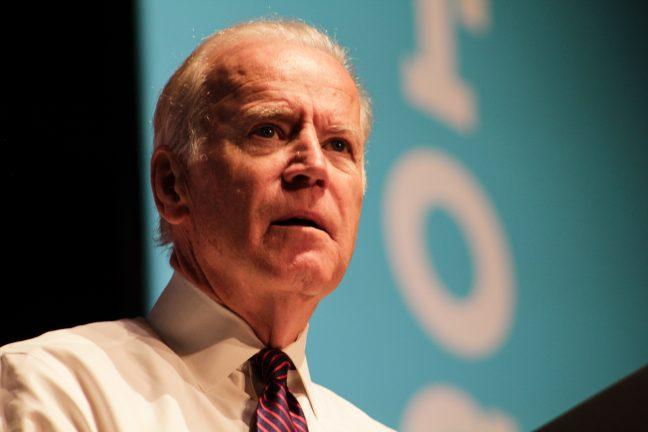Idealism v. realism; free speech v. freedom from offense; duty v. discretion. In recent weeks, these issues were catapulted from the international level and national to the campus stage when several student newspapers across the country reprinted cartoons depicting the Islamic Prophet Muhammad.
Some of those newspapers, like the University of Illinois' Daily Illini and Northern Illinois University's Northern Star, chose to publish the original cartoons created by the Danish newspaper Jyllands-Posten. Outrage about the cartoons has contributed to riots, violence and death in the Middle East.
Other newspapers, like the University of North Carolina's Daily Tar Heel, opted to print their own cartoons, either making statements about events in the Middle East or free speech.
However, reaction at most universities has been negative, with efforts by Muslim Student Associations and other groups to mobilize efforts of counter-speech, educational programs and sit-ins.
Still, many question whether student newspapers' decisions to print the cartoons were, in fact, responsible ones.
Tension
According to University of Wisconsin religious studies professor Flagg Miller, it is wrong to depict Muhammad in the Muslim religious tradition.
Miller said the idea was developed primarily 200 to 300 years after the prophet died, though its roots began far earlier. The resulting doctrine was meant to prevent idol worship and the worship of images, which had begun in other monotheistic religions.
"[Muhammad] felt like there were certain problems with the way Jesus was coming to [be] represented in the Christian world as a god," Miller said.
However, Islamic religious tradition ran into Western political tradition last September when the Danish newspaper Jyllands-Posten decided to publish 12 cartoons of Muhammad.
The newspaper chose to publish the cartoons as an act signaling their freedom of expression, unconstrained by any religion or religious beliefs.
In a Washington Post editorial, the newspaper's cultural editor, Flemming Rose, said he decided to publish the cartoons after periods of self-censorship when European media outlets began to shy away from publishing or exhibiting material that could be considered sensitive to Muslims.
"We certainly didn't intend to trigger violent demonstrations through the Muslim world," Rose said in the editorial. "Our goal was simply to push back self-imposed limits on expression that seemed to be closing tighter."
Despite the vast majority of mainstream American media outlets not reprinting the cartoons for its audience, some student newspapers picked up where their counterparts left off. Their reasons varied, though they shared a belief that their duty was to present facts to their readership and provide commentary on actions in the Middle East and Europe.
Conflict or Debate?
The debate student newspapers had wished to create on their campuses is questionable. Newspaper-heads argue their actions were innocent of hate and offense, and only meant to further their campus discourse.
However, Muslim students and their allies were both appalled and angered to find their dailies breaking precedent from the mainstream media.
"We went ahead and, we felt that this wasn't patently offensive," said Aaron Mackey, editor in chief of the University of Arizona's Arizona Daily Wildcat. "It wasn't depicting Muhammad linked to terrorism or making any sorts of stereotypes, [but] making a commentary on a pressing world issue."
Mackey said initially there was not much response to their cartoon, which presented Jesus telling Muhammad he needed to know how to take a joke, while in the company of Poseidon, Moses and the Buddha. Once other media sources began to pick up on the issue, however, student response grew exponentially.
Both the UA Muslim Students Association and the Islamic Center of Tucson responded negatively to the publishing.
"The real satirical purpose of the cartoon was to show the violence and response over a picture, a printed picture, was out of proportion," Mackey said. "An irrational response like causing harm and death does not equate to any sort of damage."
Few Muslim students disagreed with this fact. Rather, students were hurt that newspapers would willfully choose to reprint articles, which had already caused violence and hatred overseas.
UNC freshman Salma Mirza, who helped lead a sit-in at The Daily Tar Heel's office, said she was deeply offended.
"It felt like it was just another attack on Muslims," Mirza said. "They knew it would be deeply offensive."
According to Daily Tar Heel opinion page editor Chris Cameron, the newspaper knew their cartoon would create "some bad feelings."
"The reaction was probably about 75 percent negative, 25 percent positive," Cameron said. "Stuff from off-campus has been overly positive, which surprised me. Eighty or 90 percent positive."
Mirza said the newspaper's actions were indicative of how the newspaper has perceived Muslims in the past.
"So far they have refused to issue an apology, we are going back [Feb. 23] with more people [to] get more signatures and a petition," Mirza said. "If it comes out they will not institute an apology then we plan on banding together with other student organizations and individuals to ask advertisers to withdraw funds."
Mirza said The Daily Tar Heel had not contributed to campus speech or discourse.
"It has not really had a lot of discourse about what's going on in the world and how people are conflating religious and political purposes," Mirza said. "I feel that if that's the statement that they wanted to make, they could have gone about it without inflaming and offending people."
The apparent polarization of viewpoints, between newspapers and Muslim students, is not limited to just UNC or UA. Students at the University of Illinois' Daily Illini published six of the original Jyllands-Posten cartoons, while UW's The Badger Herald published the most controversial of the original cartoons, portraying Muhammad with a bomb in his turban.
"I'd say my initial reaction was disbelief and then surprise," UI MSA president Shaz Kaiseruddin said. "I couldn't imagine that our student newspaper would do that. It was of frustration. What's already sort of political tense atmosphere in America was already complicated."
In response, UI MSA drafted a letter to The Daily Illini formed from over 50 UI student organizations and has held peaceful demonstrations on the school's quad.
Kaiseruddin said the response could have occurred without the reprinting of the cartoons.
"I think that any dialogue that has ensued has happened despite the reprinting of the cartoons," Kaiseruddin said.
Kaiseruddin, a final year UI law student, said the cartoon, which portrayed Muhammad with a bomb in his turban, was the worst because it portrayed Islam as inherently linked to terrorism.
However, Rose said he interpreted the cartoon differently.
"Some individuals have taken the religion of Islam hostage by committing terrorist acts in the name of the prophet. They are the ones who have given religion a bad name," Rose said in his Washington Post editorial. "The cartoon also plays into the fairly tale about Aladdin and the orange that fell into his turban and made his fortune. This suggests that the bomb comes from the outside world and is not an inherent characteristic of the prophet."
Still, UW MultiCultural Student Coalition representative Suri Kempe said it did not matter what message the cartoons intended, because she said context is not separated from the Herald's printing of the cartoon.
"How people receive that picture is very different," Kempe said. "That's where the responsibility of the newspaper comes in."
Kempe said the cartoon has only contributed to a growing dilemma on college campuses and around the country, one of growing "Islamophobia."
Kempe also noted the cartoons were contributing to campus discourse.
"People are not making more educated arguments, people are attacking other people," Kempe said. "They're saying all Muslims hate other people … on this campus, people have been spat at, people have been cussed at, because they look at people being attacked as Muslim."
Still, Kempe said, she didn't feel that Muslim students were in trouble.
"I would say the potential for trouble is there and you're increasing that potential," Kempe said. "I pray to God it doesn't happen and that no one gets hurt because of this."
Since students have begun mobilization against the Herald's printing of the cartoon, MSA and other groups have been able to organize three separate events and a petition calling for an apology.
UW political science professor Donald Downs called Tuesday night's forum at UW "a useful exercise."
According to Downs, UW Muslim students are responding the way they should.
"It's getting people to debate the limits of free speech, raising the discussion about the limits of free speech, about the distinction between the right of free speech and discretion, raising awareness about Islam and Muslim students' presence on the campus — and those are all good things," Downs said. "Sometimes it takes controversy … to get this on the table."
But Downs said The Badger Herald had not made a hasty decision in deciding to publish the cartoon.
"It's delicate, you know to proceed on the basis of sound principles you believe in and then stand by them and then apply them regardless of what the religion is," Downs said.
Regardless, while students argue whether the cartoons have created intelligent debate or not, many know that the potential for that debate is still present.
"You'll walk away from this evening with memories and increased understanding the likes of which you will not encounter in any ordinary classroom experience," UW Chancellor John Wiley said at Tuesday night's forum. "This is really, in many ways, what a university is all about. This kind of debate about real issues that are on us at the moment — not things that are considered in a theoretical context in a classroom, things that are actually happening and affecting people's lives."















